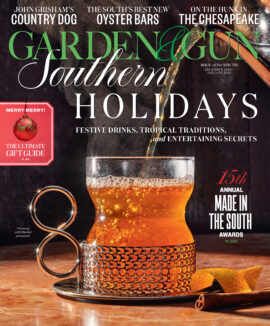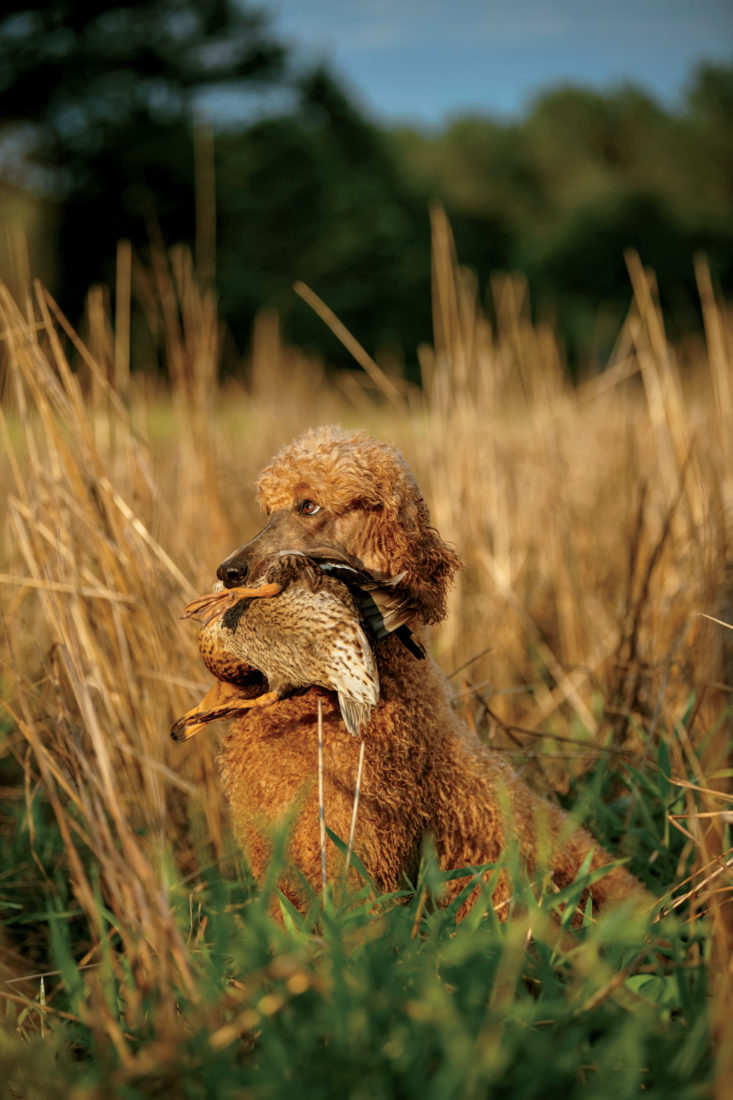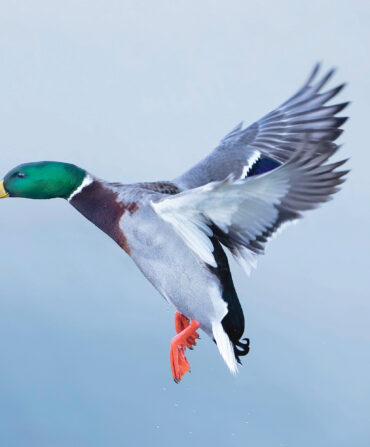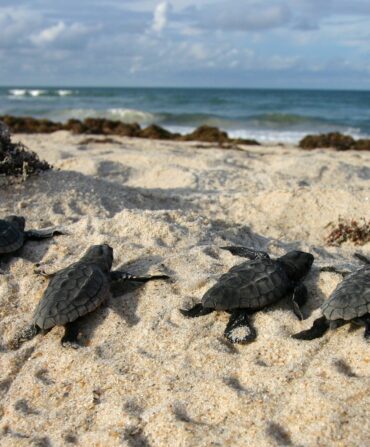In the fields surrounding his farm in west-central Georgia, Rich Louter works out a new generation of gundogs for the upcoming hunting season, running his canine pupils through retrieving drills and pattern blinds near his home in Moreland. The dogs are sharp, well behaved, indefatigable. They also happen to be poodles.
Skeptical? So was Louter, once upon a time. A lifelong hunter, he began training traditional hunting dogs—golden and Labrador retrievers and spaniels—more than twenty years ago. Then, a decade or so back, he branched out. He met a woman named Angie, and the two got married. Angie had an asthmatic daughter with allergies. So he found the retrievers new homes, and Angie’s standard poodle—a mostly hypoallergenic breed—moved in.
“I just fell in love with that dog,” says Louter, who is fifty-seven. So much so that he and Angie bought another standard poodle, Cooper, to enter into shows. As it turned out, Cooper wasn’t much of a show dog. “So I started throwing tennis balls and chucking bumpers in the water for him,” Louter says. “And he retrieved like a maniac.”
That got Louter thinking. He did some research and discovered that poodles, which have webbed feet, acted as hunting retrievers in fifteenth-century Europe. “I started to think that I might be able to turn Cooper into a pretty good gundog,” he says.
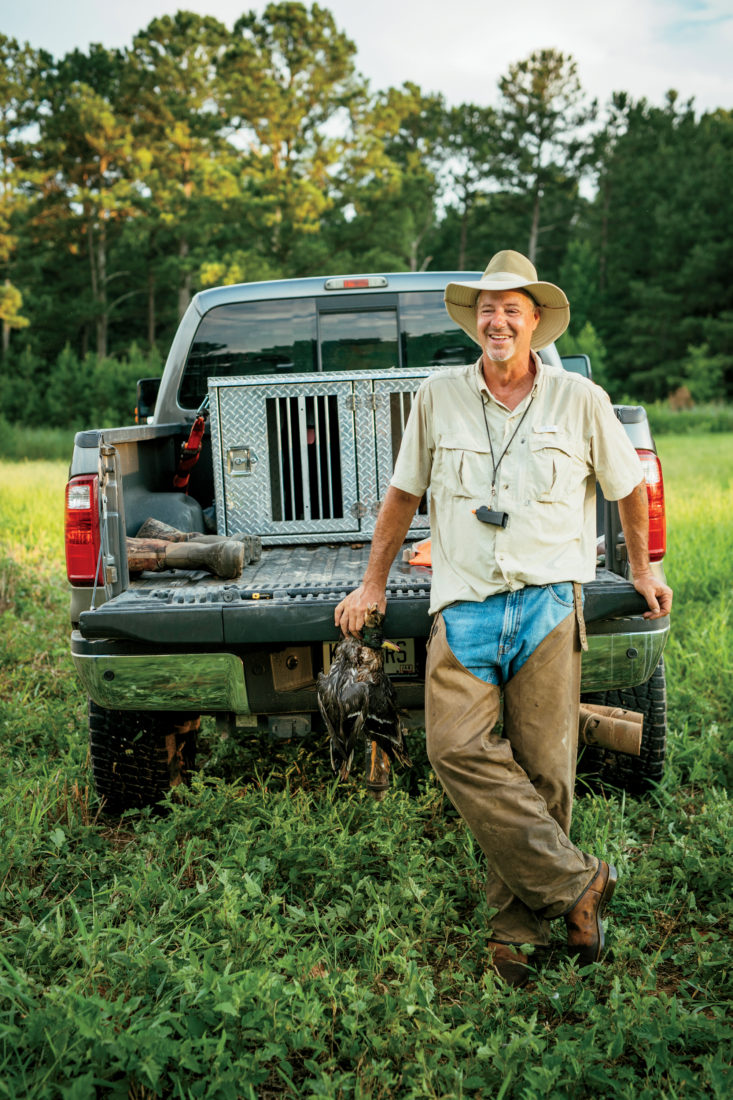
Photo: Andrew Kornylak
Rich Louter.
Cooper, who’s now eleven, became that and more. Louter has hunted him all over the country, flushing pheasant and quail, and retrieving ducks and geese. Cooper also has entered more than seventy hunt tests. He now holds a number of the most prestigious hunt-test titles, including a Master Hunter from the American Kennel Club, a Hunting Retriever Champion from the United Kennel Club, and a Master Hunting Retriever from the North American Hunting Retriever Association. The poodle even appeared on the Louisiana-set Duck Dynasty. “He is the dog of a lifetime,” Louter says.
Cooper was also the impetus for what became the couple’s livelihood and passion: Louter Creek Hunting Poodles. Angie helps with the breeding, and though Louter still works with retrievers and spaniels, he now primarily trains standards, some of them sired by Cooper. Among the handful of trainers who specialize in them nationwide, Louter has now worked with more poodles (180) and earned more hunt-test titles with the breed (eighty-six) than any other. That success has resulted in a six-to-eight-month waiting list for both puppies and training.
Poodles take a bit longer to train, Louter says, than other hunting breeds. Part of that has to do with their intelligence (the AKC describes them as “very smart”). “When you train Labs, it’s all repetition and building muscle memory,” he explains. “Poodles find that very boring. You have to stay one step ahead of them and switch it up. Sometimes you even have to make it seem like they are the ones in charge.”And though poodles were originally hunting dogs, they’ve essentially had that instinct bred out of them. The AKC lists them as nonsporting. Says Louter: “A decently bred Lab knows what it’s supposed to do in life from a young age. With poodles, we’re trying to wake up those natural instincts, that love of water and that good nose.”
As you might suspect, Louter and his dogs have had to overcome prejudices along the way. No, his poodles don’t show up in the field or at tests sporting the breed’s famous puff-balled continental clip. But they are, after all, poodles—with a reputation (unwarranted) for fussiness. Louter says that during one of Cooper’s first hunt tests, he overheard a judge say that he would never pass a poodle, no matter how well the dog did. In the years following, though, Louter says, that same judge has passed many of his poodles. “That element has gone away as the judges have seen the dogs more.”
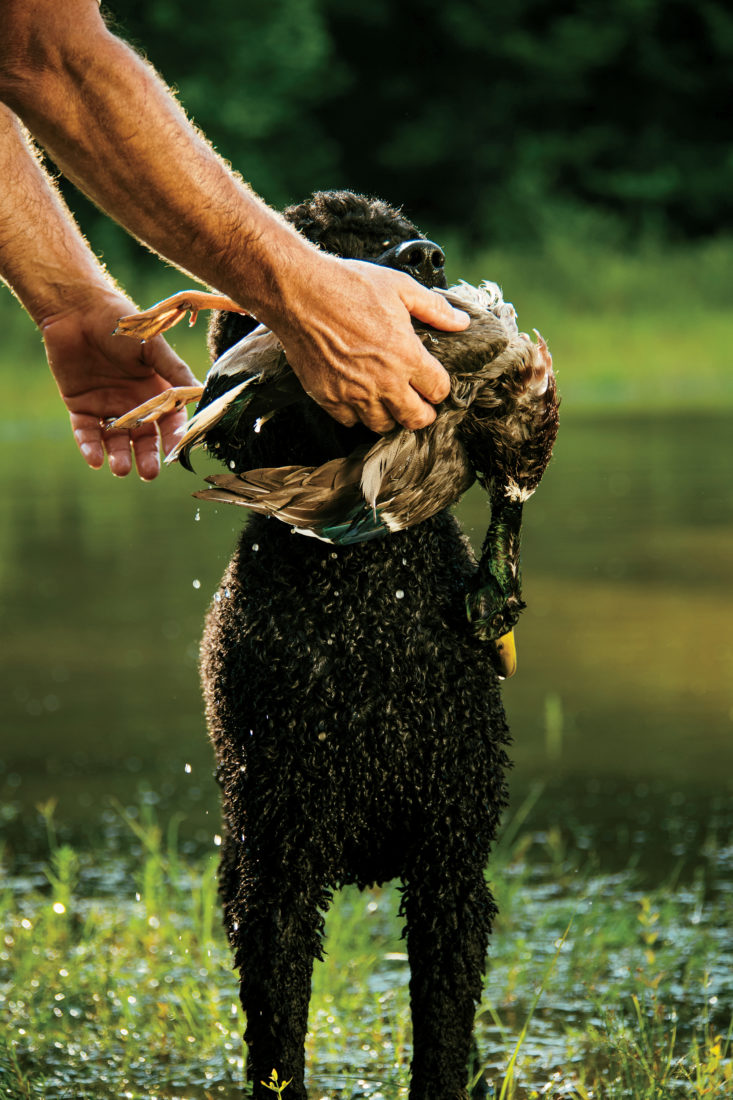
Photo: Andrew Kornylak
A successful retrieve.
There are three types of poodles: standards, miniatures, and toys. Louter typically works with standards, which are big and hardy enough (forty to seventy pounds) to retrieve any type of bird. Recently he began training his first miniature, a dog named Ammo, for a client. “He’s a stout little critter, let me tell you,” Louter says. “He’s all about it.” But Ammo has required an even defter touch than his standards. “He can get mad at you and hold a grudge for an entire day.”
Hunting poodles remain a niche in the dog world, and as far as Louter knows, no lodges run them yet. For now, Louter sells his puppies (for a price comparable to that for top Labradors) to individual hunters, the majority of whom send the dogs back to him after seven months for training. A finished dog can take more than a year.
Jason Pittman, a hunter who lives outside of Charlottesville, Virginia, bought a standard named Walker from Louter seven years ago, and then Louter trained the dog. Pittman faced some raised eyebrows, too, when he started hunting and testing the poodle. “Guys would laugh when they saw Walker come out of the truck,” he says. “My joke was ‘Laugh now, but you’ll be crying after you see him work.’” So far in his career, Walker has earned Junior Hunter and Senior Hunter titles from the AKC, and hunted with Pittman across the country. But it’s the poodle’s versatility—its hunting prowess, and its allergy-friendly nature—that makes the breed special. “They can handle themselves as well as any other dog in the water and in the field,” Pittman says. “And then, at the end of the day, they curl up at the foot of your bed. They’re great with kids and aren’t high strung. I’ll never own another type of hunting dog.”

